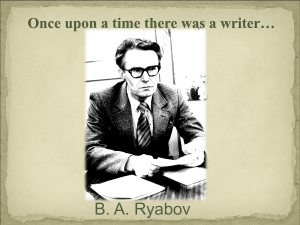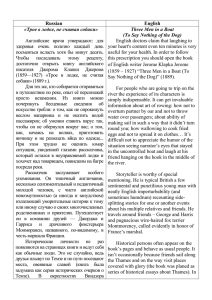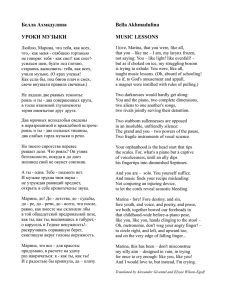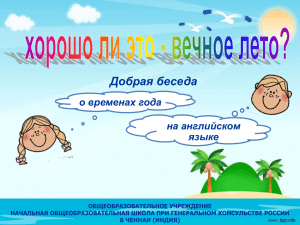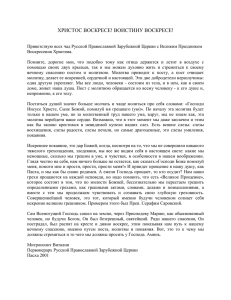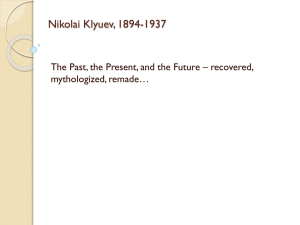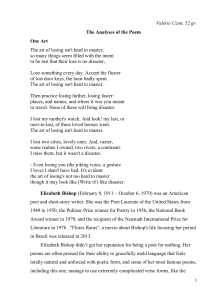Boris Pasternak, 8 class
реклама
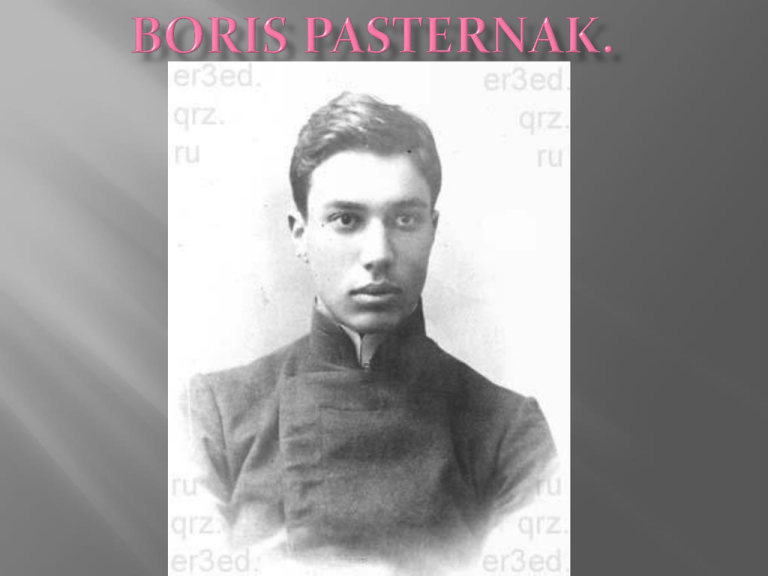
Август Анне Ахматовой Балашов Баллада Без названия (Недотрога, тихоня в быту..) Оставлена вакансия поэта... Брюсову Быть знаменитым некрасиво... В больнице Венеция Весенний дождь Весна (Весна, я с улицы...) Весна (Все нынешней весной особое...) Весна (Что почек, что клейких...) Весна в лесу Ветер (Кому быть живым...) Ветер (Я кончился...) Во всем мне хочется дойти... Вокзал Волны Все наденут сегодня пальто... Вторая баллада Гамлет Гефсиманский сад Годами когда-нибудь в зале концертной... Гроза моментальная навек Давай ронять слова... Девочка Дик прием был, дик приход... До всего этого была зима Дорога Дурной сон Душа Ева Единственные дни Зазимки Звезды летом Зима приближается Зима Зимняя ночь (Мело, мело по всей земле...) Зимняя ночь (Не поправить...) Золотая осень Импровизация Иней Июль Как бронзовой золой жаровень... Как у них Когда разгуляется Конец Красавица моя, вся стать... Кругом семенящейся ватой... Ландыши Ледоход Лето в городе Липовая аллея ДУША Душа моя, печальница О всех в кругу моем, Ты стала усыпальницей Замученных живьем. Тела их бальзамируя, Им посвящая стих, Рыдающею лирою Оплакивая их, Ты в наше время шкурное За совесть и за страх Стоишь могильной урною, Покоящей их прах. Их муки совокупные Тебя склонили ниц. Ты пахнешь пылью трупною Мертвецких и гробниц. Душа моя, скудельница, Всё, виденное здесь, Перемолов, как мельница, Ты превратила в смесь. И дальше перемалывай Всё бывшее со мной, Как сорок лет без малого, В погостный перегной. Once Marina Tsvetaeva in the heat of debate, exclaimed: "Where a person who understood until the end of Pasternak?". And she herself explained: "Pasternak - a" secret writing "," code ". Is it not a warning for people like me, for those who wander off the sea, whose name is "Lyrics by Boris Pasternak." Pasternak's creative path is complicated and thorny. His poetry is evoked divergent estimates. But his deep insight into the mysteries of the human soul, of nature, the universe, as well as a fresh, excited, and the verse has always struck fans striking poetic of art. We know that major Russian poets of the twentieth century were formed in the complex and contradictory relationship with the various literary currents. Blok began as a symbolist, Vladimir Mayakovsky - as a futurist, Anna Akhmatova - as Acmeist. Boris Pasternak as a poet once crossed with two trends: the symbolism and futurism, with Blok and Mayakovsky. The influence of literary movements refreshed the language of his poetry. Boris Pasternak was a great writer ... I advise you to read! Boris Leonidovich Pasternak was born in a family of artists. Boris Leonidovich stood out among his contemporaries. Probably because the future poet grew up in a supportive environment: his father - the academician of painting, his mother - a famous pianist. He studied abroad, he studied philosophy, was fond of history, literature, music. That is why, and I like his creativity, elegance and musicality of the verse. Pasternak's poetry calls to listen, to peer into the world, but not to invade it, so as not to disturb the harmony of nature. February. Get ink and cry! Write of it, sob, While roaring slush In the spring of a black light. Tears of joy and touch your soul - constant companions of his communion with nature. Boris Pasternak, proclaims: Nature - a huge living organism, which is the soul, love and language. This he says in the poem Spring and in many verses from the book My Sister Life. We drop the severity of cuff links, And the garden dazzles as Flatwater Sprayed, spotted Zillion blue tears. In this poem the poet speaks of the garden, through which run through the first rays of the sun, and he sprayed, spotted with rain last night (by the way, the rain - a favorite natural phenomenon Pasternak), lights, blinds unwitting observer. Speaking of poetry of Pasternak, it should be noted that the poet could not and would not confine only to the theme of nature. Since childhood the future poet was surrounded by music, art, literature. The first creative passion Pasternak - music. Was strongly influenced by Scriabin, he was thirteen years in music writing, has studied the theory of composition, but after six years of persistent classes music was always retained. After graduating from Moscow High School in 1909 entered the historical-philological faculty of Moscow University, I became interested in philosophy. To improve the knowledge of philosophy in 1912 went to Germany, where he studied semester at Marburg University. At the same time he was made a trip to Switzerland and Italy. On his return to Moscow, he graduated from university in 1913. Cool to philosophy, Pasternak completely given poetic art, which became his life's work. Works: His first collection of poems ("Twin in the Clouds", 1914 "Above the Barriers", 1917) In 1922 he published a book of poems, "My Sister - Life" In 1920 published a collection of 'Themes and Variations "(1923), began work on his novel in verse" Spektorsky "(1925) In 1928 the idea for the prose of the book "Security Certificate" In 1943 he traveled to the front, which resulted essays, "The Army" and the poem "Death Minesweeper", "Renewed fresco", "Spring" included in the book "On Early Trains" (as series of "Peredelkino), 1943. In 1956 - 1959 published the last book of poems by Pasternak, "when his". In 1960 he died from a severe illness (lung cancer), May 30 at Peredelkino
